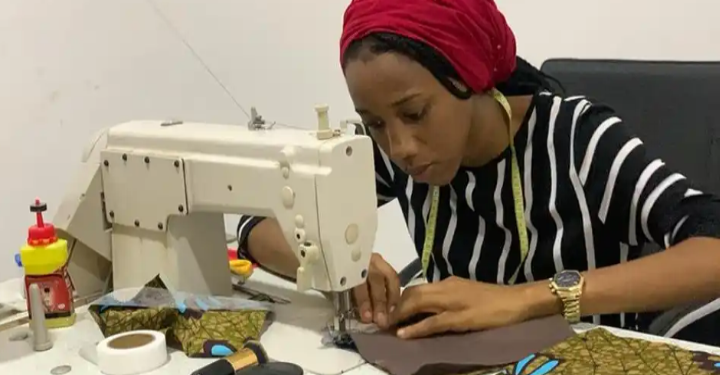The news:
There are 39.7 million Micro, Small and Medium Enterprises (MSMEs) in Nigeria and 31.4% of them are located in the north-east, north-west and north-central regions of the country, according to Kippa’s recent report on MSMEs in Nigeria.
Why this matters:
Over the years, the country of over 200 million citizens—half of which are youth between the ages of 25-50—has been struggling with a high rate of unemployment which has left 33.3% of Nigerians unemployed.
Studies have indicated that a vast majority of the unemployment rate in Nigeria—people who did nothing or worked for less than 20 hours a week—spawn from states in the northern region of the country with Benue in the lead and Zamfara, Jigawa and Taraba (among others) states following closely behind. However, MSMEs have been lauded as the backbone of the economy.
This is how they’ve contributed:
MSMEs in Nigeria account for 96.7% of businesses in the country; facilitate 87.9% of the country’s employment; run 50% of industrial jobs and 90% of the manufacturing sector in terms of number of enterprises. By doing so, they contribute about 49.7% of the National GDP.
This data shows just how valuable these enterprises are to the Nigerian economy and why they are worth studying and empowering.
Dark days for Nigeria’s MSMEs
The year 2020 saw a 3.7% reduction in the number of MSMEs in Nigeria—from 41.5 million of them in 2019, to 39.6 million in 2020.
More recently, MSMEs in states domiciled in Northern regions of the country are becoming more open to technology adoption, however, they’ve been struck by challenges that threaten both their businesses and the society at large. Hence, the search to find reasons and solutions to help curtail the challenges faced by MSMEs in Nigeria.
Challenges faced by MSMEs in Northern Nigeria
- Poor Documentation: In Kippa’s report titled, “Fuel for Africa’s Next Billion Businesses“, they iterated that most of the 23,618 MSMEs polled across the 36 states of Nigeria, are unwilling and/or cannot afford to pay for bookkeeping services. While this may sound like a careless move on the part of these entrepreneurs, it is actually quite understandable as most of these enterpreneurs are people who feed and live off of their profits from these businesses. One may argue that bookkeeping can still be done by the entrepreneurs themselves, but without proper skills or know-how the attempt can only fall through. For this reason, a lot of these enterprises fail since they cannot track their progress or apply for loans when the need arises as these things cannot happen without adequate bookkeeping.
- Limited access to finance: studies have shown that businesses in Nigeria thrive on capital sourced from personal savings, family and friends, loans from banks and investors. However, so many factors can and have hindered a handful of businesses from gaining the financial support that their businesses require. One of these factors is the lack of proper financial records as this is a key requirement for receiving loans from banks. Another hindrance is ignorance on the part of the enterpreneurs as some of them do not know how to attract or apply for investments.
- Lack of proper skills and digital tools: “Businesses in the South are more open to embracing technology to manage their business. One reason for this may be because the south is more urbanized, and has more internet connectivity, and smartphone usage than the north. The North also has a lesser rate of technological adoption.” Kippa noted in their report.
- Insecurity: For almost 2 decades, insecurity has been a matter of major concern for Northerners in Nigeria and it has negatively affected every aspect of their lives. With every curfew imposed and every death threat issued, there’s been worse repercussions on the people and the way they interact. “Conflict remains the main driving factor of instability in northeast Nigeria. Conflict has affected industry, infrastructure and displaced more than 2.2 million people in the northeast, and more recently, intracommunal clashes and crime have triggered displacement ofnearly 1 million people across the northwest and northcentral zones, worsening food security and causing grave protection challenges.” says the World Food Programme.
- Lack of proper infrastructure: Dr Friday Okpara, Director of Partnerships and Collaboration at Small and Medium Enterprises Development Agency of Nigeria (SMEDAN), in an interview with Kippa had said that “MSMEs in Nigeria operate as their own local government”. What this means is that the lack of adequate infrastructure has left businesses with the responsibility of owning, managing, protecting and elevating their businesses all by themselves. The lack of reliable power supply is one of the biggest challenges for MSMEs in Northern Nigeria. In 2018, Vanguard reported that small-scale generators (10-15 GW) account for almost 50% of the population (13 states) that have limited or no access to the grid. Consequently, citizens of these states spend about $14 billion annually on inefficient and expensive generation ($0.40/kWh or N140/kWh or more), which also pollutes the environment.
Solutions to the problems
- Technology: The advent of technology has provided tons of opportunities for actors in every sector of human existence. For businesses, various tools have provided to facilitate production, marketing and transactions. With mobile applications like Kippa, even bookkeeping and debt tracking can be efficiently conducted with ease and speed. There is a growing need for businesses to leverage on these readily available technologies.
- Government intervention: The Government also has a major role to play in providing necessary infrastructure, security, grants and policies that will facilitate the growth of these businesses.

































